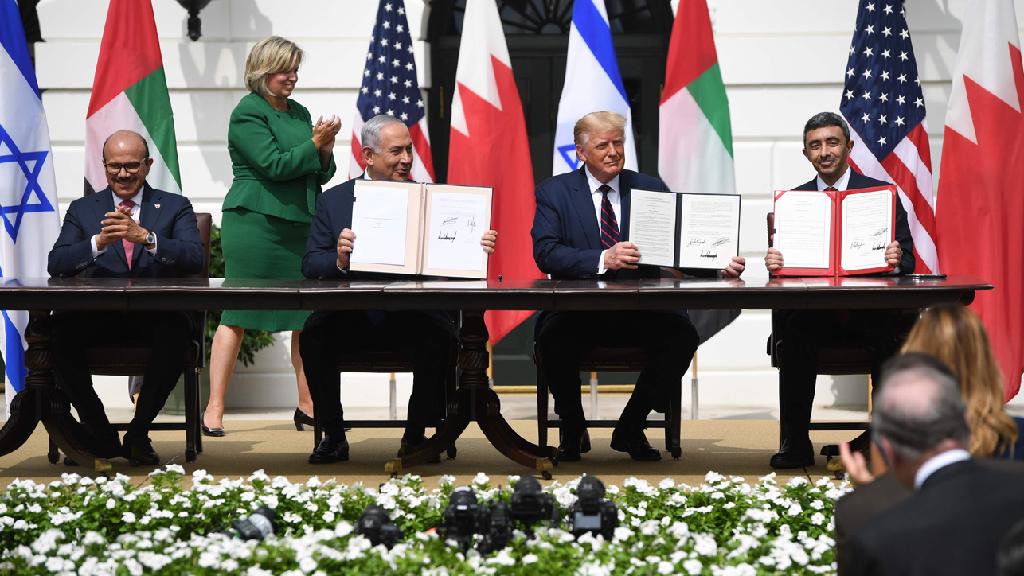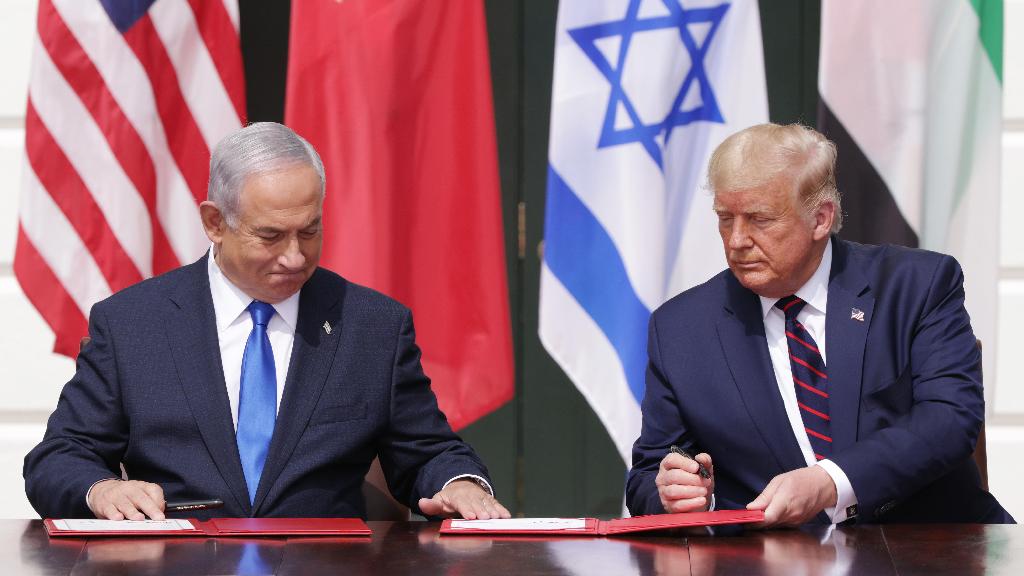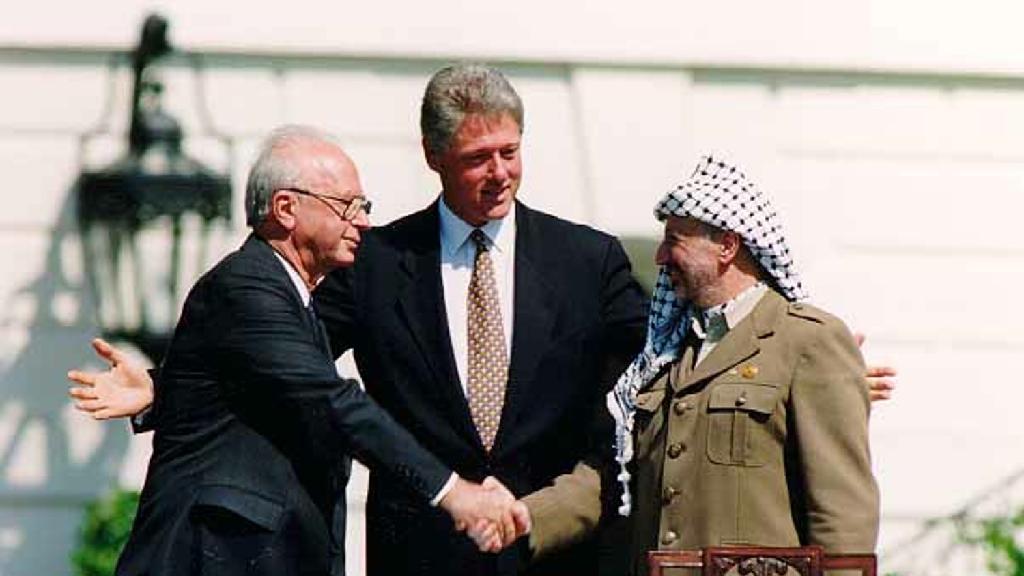Success has many fathers, and they should all be commended for their role in Tuesday's signing of the peace agreement between Israel and the UAE and the normalization of relations with Bahrain.
First to be commended should be U.S. President Donald Trump's son-in-law and senior aide Jared Kushner, who was the major force behind the deals.
4 View gallery


L-R: Bahraini FM Abdullatif al-Zayani, PM Benjamin Netanyhau, U.S. President Donald Trump and Emirati FM Abdullah bin Zayed Al Nahyan at the White House signing ceremony
(Photo: AFP)
He should be followed by Mohammed bin Zayed Al Nahyan, the de facto ruler of the UAE, King Hamad bin Isa bin Salman al-Khalifa of Bahrain and Prime Minister Benjamin Netanyahu, who have all shown great courage.
King Hamad and MBZ were prepared to risk Iranian ire and Netanyahu agreed to pay the necessary price to see these deals sealed.
Now is a time for celebration that should certainly not be marred by bringing up the true cost.
The Palestinians were present on the South Lawn of the White House as well, albeit only as the specter at the feast.
"I've said to the Palestinians," Kushner reportedly said during one of his visits to Jerusalem, "if you engage in talks with us, we can deliver much for you. If you persist in your resistance, we will walk away."
"That is the difference between you and us," his Israeli interlocutor said. "You can walk away but we are stuck with them."
4 View gallery


Palestinians burn mock coffins representing the United Arab Emirates and Bahraini normalization agreements with Israel
(Photo: AP)
For U.S. President Donald Trump, Tuesday's event was vital. It provides him with a wealth of material for his campaign ads and no less critical, it gives him an edge in the upcoming debate against his Democratic opponent Joe Biden.
The normalization agreements between Israel and the Gulf states is his sole foreign policy achievement and the only issue that receives bipartisan approval.
Evangelicals will hail the deal, but most voters cannot tell one Gulf nation from another.
Ironically, it is American weakness that had facilitated the agreements. Sunni regimes in the Gulf have realized they can no longer depend on the U.S. for their security. Trump often makes threats but is careful not to carry them out and cannot be trusted. Israel will now step in to fill the vacuum left by the president and his policies.
Iran has also played a major role in the run up to the peace agreements.
Most Sunnis may hate Israel more than they do the Shi'ite leaders of Iran, but their rulers prefer Israel to the Islamic Republic.
4 View gallery


Prime Minister Benjamin Netanyahu and U.S. President Donald Trump at the signing ceremony of the Abraham Accords at the White House
(Photo: Getty Images)
Israeli military and technological superiority along with the country's determination and willingness to use its military force, makes it an attractive partner.
Prior peace accords signed on the White House lawn have yielded their fair share of achievements, but have also tempered over the years. Peace between Israel and Egypt remains a cold one and Israel is hated by ordinary Egyptians.
The peace agreement with Jordan has also soured and the Oslo Accords that were to pave the way for peace with the Palestinians are hanging on by a thread – teaching us that peace must be a continual work in progress as soon as the ceremonies are over, and must not be left to the devices of governments alone.
4 View gallery


Prime Minister Yitzhak Rabin, U.S. President Bill Clinton and Palestinian President Yasser Arafat at the signing of the first Oslo Accords in 1993
(Photo: Reuters)
As for Netanyahu, he can consider the deals with the UAE and Bahrain as his crowning achievements. He has made his mark on the Middle East and can claim a legacy.
But like the two-faced Roman god Janus, the world leader who proudly paraded through the White House on Tuesday was before and after this ceremony no more than a politician who has led his country to colossal failure in its battle against coronavirus.
The prime minister has two faces that we can see, one that evokes some respect while the other is a national embarrassment.

